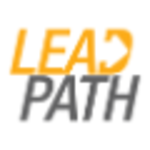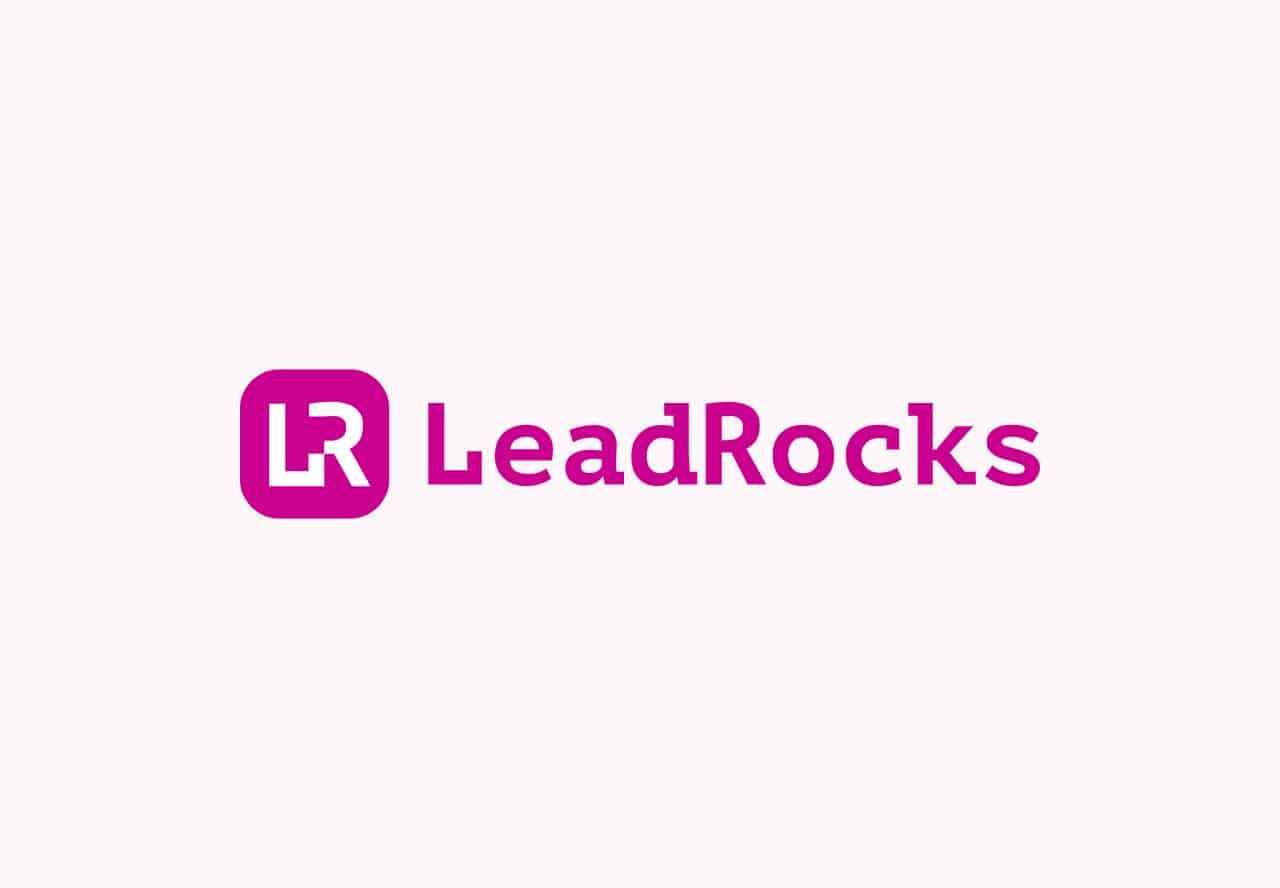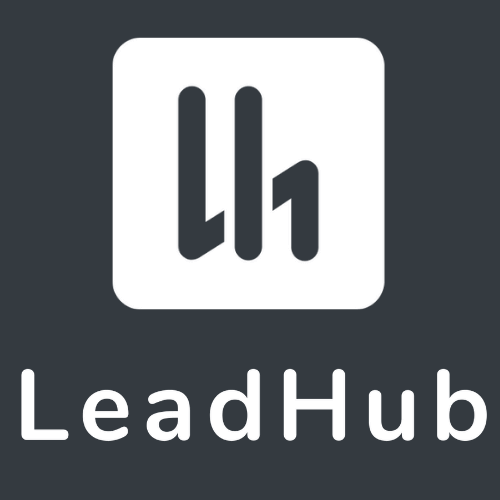Description

LeadPath

LeadRocks
Comprehensive Overview: LeadPath vs LeadRocks
To provide a comprehensive overview of LeadPath and LeadRocks, let's examine each product individually and then compare their market presence and key differentiating factors.
LeadPath
a) Primary Functions and Target Markets:
- Primary Functions: LeadPath is a lead management and sales automation platform designed to optimize the process of acquiring, managing, and converting leads into customers. It offers tools for lead capture, scoring, tracking, nurturing, and analysis. Features often include CRM integration, analytics, email marketing automation, and customer segmentation.
- Target Markets: LeadPath typically targets mid-sized to large enterprises across various sectors that require sophisticated lead management solutions. These companies often have large sales and marketing teams that need to process and manage high volumes of leads.
b) Market Share and User Base:
- While specific market share data is not always publicly available, LeadPath is generally positioned as a player in the crowded sales and marketing automation software sector. It competes with other CRM and lead management tools from companies like Salesforce, HubSpot, and Marketo.
- LeadPath's user base consists mainly of businesses looking for an all-in-one lead management solution with robust automation capabilities.
c) Key Differentiating Factors:
- Comprehensive lead profiling and scoring directly integrated with CRM systems.
- Strong analytics and reporting tools that provide insights into lead conversion rates and sales funnel performance.
- Advanced automation features for customized lead nurturing campaigns.
LeadRocks
a) Primary Functions and Target Markets:
- Primary Functions: LeadRocks is typically a lead generation and contact database tool that helps businesses discover potential prospects by providing access to a wide array of business contact information. It allows users to search for targeted leads based on industry, location, or other criteria.
- Target Markets: The primary market for LeadRocks includes small to mid-sized businesses, sales teams, and marketing agencies that focus on outbound sales strategies. It is particularly beneficial for businesses looking to quickly identify and reach out to potential clients or partners.
b) Market Share and User Base:
- In the context of contact database and lead generation tools, LeadRocks competes with platforms like ZoomInfo, LinkedIn Sales Navigator, and Clearbit. These markets tend to have a diverse range of competitors, and market share can vary significantly by region and industry focus.
- The user base of LeadRocks is typically smaller companies or individuals in roles such as sales development representatives (SDRs) and business development managers who require cost-effective and fast access to prospect data.
c) Key Differentiating Factors:
- Extensive and regularly updated contact database with advanced search filters.
- Integration capabilities with various CRM and sales engagement platforms to streamline workflow.
- Competitive pricing models catering to smaller businesses and individual users.
Comparison and Differentiation
- Scope and Complexity: LeadPath focuses on comprehensive lead management and sales process automation, which makes it suitable for larger organizations with more complex processes. In contrast, LeadRocks emphasizes efficient lead discovery and simple integration, appealing to smaller businesses.
- Functionality vs. Data: LeadPath offers a suite of functionalities around managing and analyzing the lead conversion process. LeadRocks primarily provides access to extensive contact information, enabling users to quickly identify prospects.
- User Base Focus: LeadPath caters more towards enterprise-level clients with a need for integrated solutions, while LeadRocks is tailored for smaller teams that prioritize quick and affordable access to leads.
In summary, while both LeadPath and LeadRocks cater to different aspects of the lead generation and management process, their target markets and feature sets are distinct, making each more suitable for particular business needs.
Contact Info

Year founded :
2015
+1 312-219-9660
Not Available
United States
http://www.linkedin.com/company/leadpath

Year founded :
Not Available
Not Available
Not Available
Not Available
Not Available
Feature Similarity Breakdown: LeadPath, LeadRocks
As of my last update, I don't have specific data on a product named "LeadPath." However, I can offer a general comparison structure that would apply if you're comparing two lead generation tools like "LeadPath" and "LeadRocks." If these are hypothetical or niche products, the following breakdown would serve as an example modeling based on common characteristics of similar lead generation software.
a) Core Features in Common
-
Lead Database:
- Access to a large database of potential leads, typically filtered by industry, title, company size, location, etc.
-
Contact Information:
- Provision of detailed contact information for leads, such as emails, phone numbers, and social media profiles.
-
Search and Filtering Tools:
- Advanced search capabilities to refine and narrow down lead lists based on specific criteria.
-
Integration Capabilities:
- Ability to integrate with CRM software and other marketing or sales tools to streamline lead import and management.
-
Data Export:
- Features to export lead lists to CSV or other formats for offline use or further processing.
-
Compliance Checks:
- Tools to ensure compliance with data protection regulations like GDPR, often providing opt-out and privacy management options.
b) User Interface Comparison
-
Design and Usability:
- LeadPath: May have a traditional dashboard with straightforward navigation designed for ease of use, emphasizing productivity through simplicity.
- LeadRocks: Could offer a modern, intuitive interface with visually engaging elements, possibly incorporating drag-and-drop features or customizable dashboards for better personalization.
-
Accessibility and Customization:
- LeadPath: Interface might be more conservative in customization, focusing on standard templates and tools for efficiency.
- LeadRocks: Likely offers more customization options, with user interfaces that can be tailored with widgets or add-ons to meet specific needs.
-
Mobile Responsiveness:
- Both platforms would likely prioritize mobile-friendly interfaces, but LeadRocks might push updates for a seamless experience across devices more frequently.
c) Unique Features
-
LeadPath Unique Features:
- AI-powered Insights: May offer advanced AI analytics for lead scoring or predicting lead conversion rates.
- Industry-specific Data: Could provide tailored data solutions catering to niche markets or industries.
-
LeadRocks Unique Features:
- Real-time Lead Updates: Possible unique feature where lead data is updated in real time, providing the latest information.
- Automated Outreach Tools: May offer built-in email sequence automation tools for engaging leads directly from the platform.
In evaluating these tools, users should weigh these similarities and distinctions against their business needs, looking into trial versions or demos that many software typically offer to get a firsthand experience.
Features

Lead Management
Sales Automation
Integration
Analytics & Reporting

Lead Generation
Data Management
Performance Tracking
Outreach Tools
Best Fit Use Cases: LeadPath, LeadRocks
To describe the best fit use cases for LeadPath and LeadRocks, it's important to differentiate between their functionalities, business models, and target audiences. Both are tools that aim to streamline the sales and lead generation processes, but they cater to different needs based on their unique features.
LeadPath
a) For what types of businesses or projects is LeadPath the best choice?
-
B2B Enterprises: LeadPath is ideal for large B2B enterprises that require comprehensive lead management solutions. Its sophisticated tools allow businesses to capture, track, and nurture leads throughout the sales funnel.
-
Complex Sales Cycles: Companies with complex sales processes that involve multiple touchpoints and interactions would benefit from LeadPath. The platform often includes features like lead scoring and automated workflows to manage long sales cycles effectively.
-
High-Volume Lead Processing: Businesses that handle a large volume of leads and require advanced filtering and prioritization would find LeadPath to be a valuable choice.
-
Marketing Agencies: Agencies that manage lead generation and nurturing for multiple clients can use LeadPath's robust analytical tools to optimize campaigns and report results efficiently.
LeadRocks
b) In what scenarios would LeadRocks be the preferred option?
-
Startups and Small to Medium Enterprises (SMEs): LeadRocks is suitable for smaller companies or startups that need efficient lead data sourcing without the complexity of larger platforms.
-
Outbound Sales Teams: Companies focusing on outbound sales strategies, such as cold emailing or calling, can leverage LeadRocks' database of contact information to fuel their campaigns.
-
Budget-Conscious Businesses: LeadRocks often offers more affordable pricing compared to comprehensive CRM solutions, making it ideal for businesses that need to control costs.
-
Fast Paced Environments: In industries where speed is crucial, like tech or SaaS, LeadRocks allows teams to quickly gather contact information and move forward with prospecting.
Industry Verticals or Company Sizes
d) How do these products cater to different industry verticals or company sizes?
-
LeadPath primarily caters to larger enterprises across various industry verticals including finance, healthcare, and technology that require detailed and complex lead management systems. Its advanced features can accommodate the nuanced needs of these industries, which often involve regulatory compliance and detailed customer interactions.
-
LeadRocks serves a wider range of industries by providing essential lead data necessary for outreach. Vertical markets such as technology, marketing agencies, and smaller B2B sectors benefit most from its streamlined approach to acquiring and managing leads with minimal setup time and lower financial commitment.
In summary, LeadPath is the better choice for enterprises seeking a robust and comprehensive lead management system, while LeadRocks is ideal for smaller businesses or teams looking for a straightforward, budget-friendly lead data solution. Each product caters to different needs depending on company size and industry requirements.
Pricing

Pricing Not Available

Pricing Not Available
Metrics History
Metrics History
Comparing undefined across companies
Conclusion & Final Verdict: LeadPath vs LeadRocks
To provide a comprehensive conclusion and final verdict for LeadPath and LeadRocks, we should evaluate the features, pricing, usability, integrations, and target audience of both products. Here's a detailed analysis:
a) Overall Value Comparison
The best overall value will largely depend on the specific needs and objectives of the user or organization:
-
LeadPath: Generally known for its robust lead management capabilities, focusing more on lead conversion processes, CRM integration, and analytics. It might offer better value for businesses that need comprehensive lead nurturing and conversion tools.
-
LeadRocks: Often praised for its powerful lead generation features, especially with extensive database access and AI-driven lead scoring. It tends to provide excellent value for those primarily interested in building and expanding their prospect lists rapidly.
b) Pros and Cons
LeadPath:
-
Pros:
- Strong integration with popular CRMs, enhancing workflow automation.
- Advanced analytics and reporting for insights into lead behavior and conversion.
- Comprehensive lead nurturing tools to guide leads through the sales funnel.
-
Cons:
- May have a steeper learning curve due to complex features.
- Potentially higher cost if the full suite of tools is not utilized effectively.
- Could be overwhelming for smaller businesses or startups without a dedicated marketing team.
LeadRocks:
-
Pros:
- Extensive and accessible lead database, particularly useful for B2B sectors.
- AI-driven lead scoring to prioritize high-quality leads.
- User-friendly interface with straightforward lead generation functionalities.
-
Cons:
- May lack in-depth lead nurturing capabilities beyond initial contact.
- Integration options might not be as extensive, limiting workflow efficiencies.
- Could require additional tools for full lifecycle management if converting leads is a focus.
c) Recommendations
When deciding between LeadPath and LeadRocks, users should consider the following:
-
Business Needs: If lead conversion and nurturing are primary focuses, then LeadPath might be the better choice. However, if the objective is to generate and access a high volume of leads quickly, LeadRocks could be more beneficial.
-
Budget: Consider the cost implications of each product, not just in terms of subscription fees but also in the context of the time and resources needed to integrate and train staff on the tool.
-
Integration Requirement: If integration with existing systems (e.g., CRM, marketing automation) is crucial, assessing the compatibility of each product with current technology stacks is essential.
-
Scale and Growth Goals: For businesses in rapid growth phases or during market expansion, lead generation capabilities of LeadRocks may provide a tactical advantage, whereas LeadPath could be strategic for steady growth through improved lead conversion.
Ultimately, the decision should align with the overarching marketing and sales strategy of the business, accounted for by current infrastructure, team capabilities, and long-term goals. Trial periods or demos of both products, if available, could also aid in making an informed decision.
Add to compare
Add similar companies



